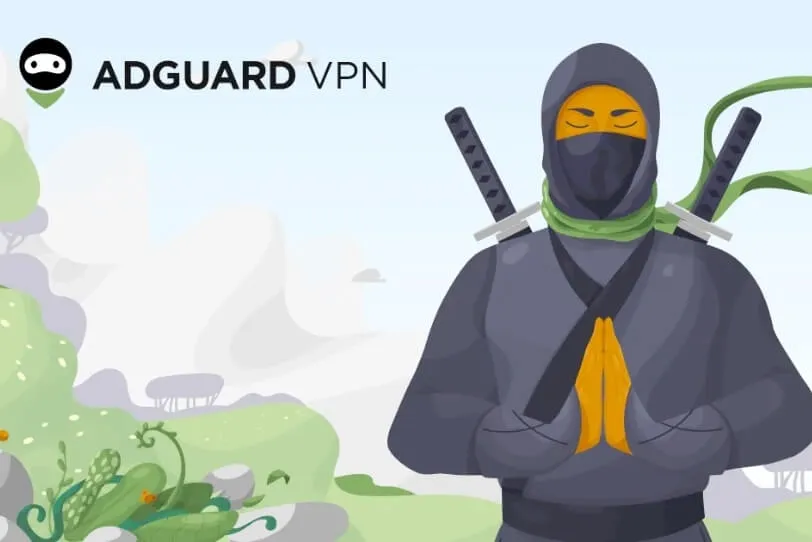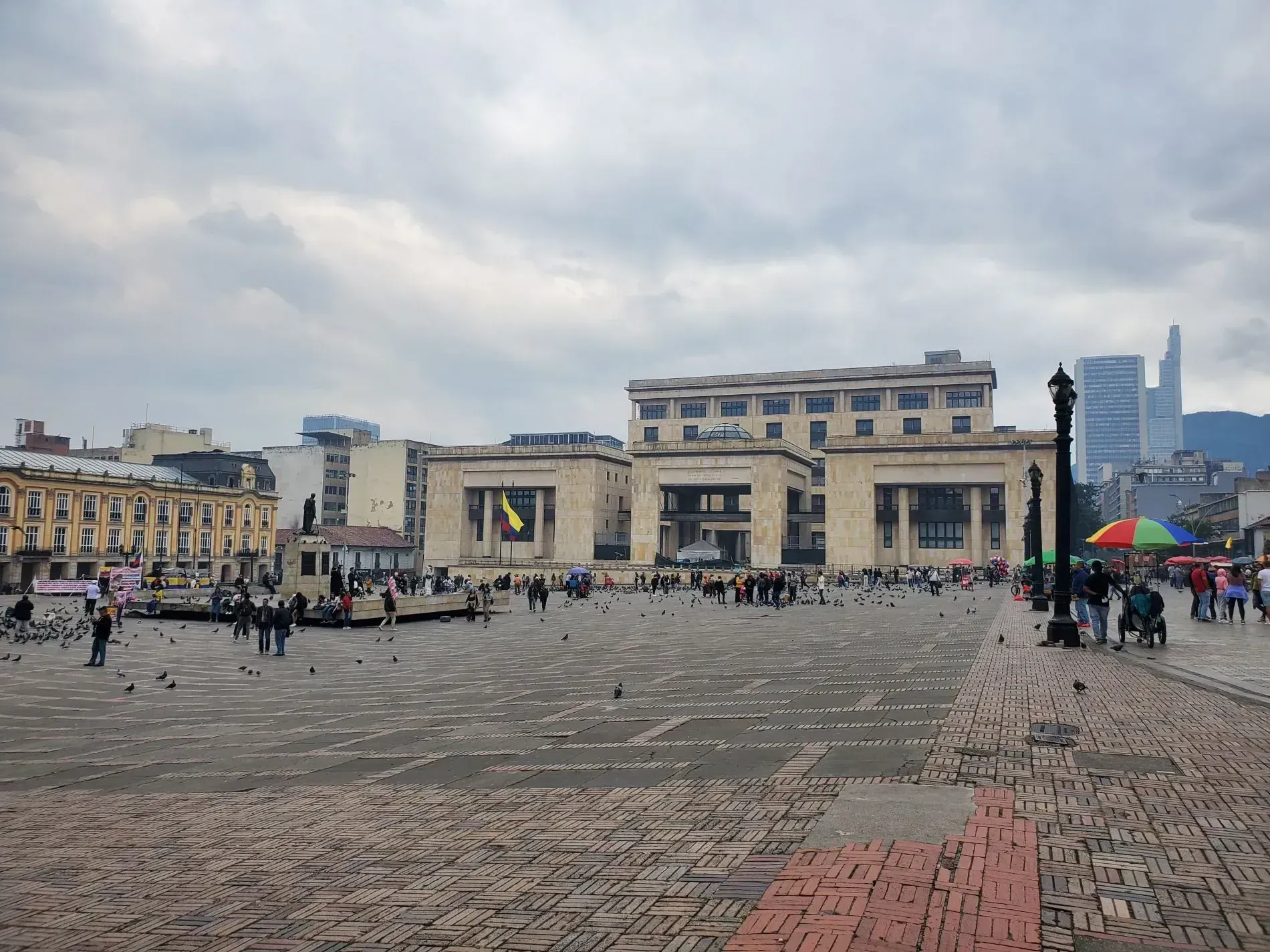🕒13 min read
Ever tried booking a last-minute flight in a bustling airport café, only to realize the Wi-Fi is about as secure as a suitcase with a broken zipper? In today’s world, staying connected on the road isn’t just about posting that perfect sunset shot or streaming your favorite show from a hostel in Bali — it’s about travel safety, too. Whether you’re a globe-trotting digital nomad or just escaping for a weekend adventure, every time you log onto public Wi-Fi, you’re basically inviting cyber snoops to crash your virtual party.
VPN Who
Enter the VPN for travel — your personal online bodyguard. A VPN (Virtual Private Network) creates a secure tunnel for your internet traffic, shielding your data from prying eyes and keeping your private info, well, private. Think of it as the digital version of putting your passport in a money belt: it may not be flashy, but you’ll be glad you have it when you need it most. Curious how this simple tool can save your trip — and maybe even your identity? Stick around to find out why a VPN is the ultimate travel essential you never knew you needed.
Why Cybersecurity Matters for Travelers
Let’s be real — when you’re jetting off to Bali or hustling through an airport in Berlin, you’re more focused on your next adventure than on hackers lurking in the digital shadows. But here’s the thing: travelers are prime targets for cyber threats, especially when connecting to public Wi-Fi at airports, cafés, and hotels. These networks might seem convenient, but they’re often as secure as a suitcase with a broken zipper. Hackers love to snoop on unsecured connections, snatching up passwords, credit card numbers, and personal emails faster than you can say “free Wi-Fi.”
Digital Thieves
Beyond the usual pickpocketing risks, digital thieves can do some serious damage if you let your guard down. Imagine logging into your bank account from a hotel lobby only to find out someone else has done the same — from halfway across the globe. Data breaches and identity theft aren’t just horror stories for tech nerds — they happen to regular folks every day, especially those who travel frequently and rely on open networks.
That’s where online security tools like a VPN for travel come in clutch. A VPN (Virtual Private Network) creates a secure tunnel between your device and the internet, keeping your private info away from prying eyes — even if you’re sipping espresso in a Parisian café. It scrambles your data with strong encryption, making it nearly impossible for hackers to intercept your sensitive details or track your online activity. In short: using a VPN while traveling is like locking your valuables in a safe before heading out to explore.
Caution
If you think, “I’m just browsing Instagram — who cares?” think again. Even casual browsing can expose enough information to put you at risk. Protecting your personal data isn’t just about safeguarding your money — it’s about keeping your identity, privacy, and peace of mind intact wherever your passport takes you.
How a VPN Works
So, what exactly does a VPN do behind the scenes? Imagine you’re sending postcards from Bali — except you don’t want nosy strangers reading them along the way. A VPN, or Virtual Private Network, wraps your online activity in a secure, encrypted envelope. This encryption turns your data into unreadable gibberish for anyone snooping around on public Wi-Fi, from airport lounges to hostel lobbies. Even if a hacker manages to intercept your connection, all they’ll see is a scrambled mess rather than your sensitive info.
Encryption & IP
But there’s more to it than just encryption. One of the coolest perks of using a VPN like AdGuard VPN is that it hides your real IP address and location. Think of your IP address as your digital return address — it reveals where you are in the world and can be used to track your browsing habits. When you connect through a VPN server (let’s say in Germany while you’re actually in Thailand), websites and apps see only the German location. This nifty trick helps you dodge creepy tracking ads, bypass local censorship, and even snag better travel deals that sometimes vary by region.
Geo-Targeted Cyberattacks
Another underrated benefit: masking your location also means you’re less likely to fall victim to geo-targeted cyberattacks or scams aimed at tourists. Ever noticed how scams seem to pop up when you’re traveling abroad? Using AdGuard VPN, you blend in with local traffic or appear to be back home, making it harder for cybercriminals to single you out as an easy mark. In a nutshell, a VPN gives you the digital equivalent of a disguise kit — handy when you’re hopping between countries and networks.
In short, using a VPN isn’t just about being secretive; it’s about staying safe and taking control of your digital identity while exploring the world. Whether you’re booking flights at a café in Paris or uploading photos from a mountain lodge in Peru, AdGuard VPN ensures your connection stays private and your personal info remains yours alone.
The Advantages of Using AdGuard VPN
Let’s be real — nobody wants to fiddle with complicated tech when they’re trying to navigate a new city or catch that last-minute train. That’s where AdGuard VPN shines for travelers. Its interface is so intuitive that even if your only tech skill is resetting your phone, you’ll have no trouble getting online securely in seconds. Whether you’re using a laptop at a Parisian café or checking emails on your smartphone in Bali, AdGuard VPN is compatible with pretty much any device you’d pack in your carry-on — Windows, Mac, iOS, Android, you name it.
Why Use Adguard VPN
AdGuard VPN isn’t just about ease of use; it’s packed with features that globetrotters genuinely appreciate. For example, its “Selective Mode” lets you decide which apps use the VPN and which connect directly — perfect if you want your banking app locked down while streaming local radio without the VPN. Worried about internet privacy while hopping between sketchy airport Wi-Fi hotspots? AdGuard VPN automatically encrypts your data and masks your location, so snoops and hackers are left in the dark, no matter where you are.
Global Servers
Another big plus: AdGuard’s network of global servers. If you suddenly need to appear as if you’re back in your home country (say, to access your favorite news site or book a flight with your domestic discount), just tap and go. Plus, the service has a reputation for speed, so you won’t be stuck watching the dreaded buffering wheel spin while trying to catch up on shows or upload travel photos. As one digital nomad put it, “AdGuard VPN is my travel buddy — I can bounce from Tokyo to Berlin and still feel like my online life is totally under control.”
In short, AdGuard VPN combines robust internet privacy tools with a setup so simple, you’ll spend less time worrying about security and more time enjoying your adventures. It’s like packing a digital Swiss Army knife: lightweight, versatile, and always ready when you need it most.
Setting Up Your VPN Before You Travel
Getting your VPN for travel up and running before you hit the road is one of those five-minute tasks that can save you hours of headaches later. Start by picking a reputable VPN provider — AdGuard VPN, for example, is known for its user-friendly setup. Download the app on all your devices (laptop, phone, tablet — the more, the merrier). Most VPNs will walk you through the installation process: create an account, log in, and then you’re basically good to go. If you’re new to this, don’t worry — no tech degree required! Just follow the prompts, and you’ll be securely connected in no time.
Set Your Settings
Once your VPN is installed, take a minute to play around with the settings. Many VPNs let you choose protocols (think of them as different "routes" for your internet traffic) and adjust security levels. For travelers, enabling features like “Auto-connect on public Wi-Fi” is a smart move — this way, your VPN fires up automatically whenever you connect to those sketchy airport or coffee shop networks. A quick tip: save your login info in a secure password manager, so you’re not locked out when you need it most (because who remembers passwords after a 12-hour flight?).
Censorship
Choosing the right server location is where the magic happens. If you want to access region-locked content — say, catch up on your favorite shows from back home while lounging on a Thai beach — select a server in your home country. Need faster speeds or want to avoid local censorship? Opt for a server geographically closer to your current location or one in a country with more relaxed internet regulations. Some VPN apps even show real-time server load, so you can pick the fastest option (nobody likes buffering mid-binge).
Finally, give your setup a test drive before leaving. Try connecting to different servers and accessing region-locked content you’ll want on your travels — streaming services, banking sites, or even news outlets. This “pre-flight check” ensures everything works smoothly, saving you from frantic troubleshooting when you should be exploring. Trust us, future-you will be grateful for the five minutes spent getting your VPN travel-ready.
Safe Browsing Tips While Traveling
Public Wi-Fi is like that sketchy free sample table at the airport — tempting, but you never really know what you’re getting. Airports, hotels, cafés, and even train stations love to offer “free” internet, but these networks are often playgrounds for cyber snoops and hackers. The first rule of travel club: never hop onto public Wi-Fi without firing up your VPN. A VPN acts like your personal invisibility cloak, encrypting your data and keeping prying eyes out, so you can check your email or book your next hostel without worrying about someone swiping your passwords.
Best Practices
But don’t stop there. Even with a VPN, it’s smart to take a few extra precautions. Always log out of sensitive accounts when you’re done — think banking apps, email, or anything with private info. Turn off automatic Wi-Fi connections on your devices; you don’t want your phone latching onto random networks just because it recognizes the name “Starbucks.” And if you get a pop-up asking you to install something or update software while on public Wi-Fi, hit “cancel” faster than you’d dodge a street vendor selling knockoff sunglasses.
Two-Factor Authentication
For added digital privacy, enable two-factor authentication (2FA) on your most important accounts. That way, even if someone does manage to snag your password, they’re still locked out unless they have access to your phone or secondary email. Remember, a strong password is like a sturdy suitcase — don’t leave home without it. Use a password manager to keep things organized and avoid the temptation to reuse the same easy-to-guess code everywhere.
In short: treat your online life as carefully as your passport. With a VPN as your first line of defense and some savvy browsing habits in your toolkit, you’ll keep digital trouble at bay and focus on what matters — like finding the best local eats or snapping that perfect sunset shot for your travel blog.
Real-Life Scenarios: VPN Use Cases for Travelers
Ever tried to binge your favorite series in a Parisian café only to be hit with the dreaded “Content Not Available in Your Region” message? Meet Jamie, a digital nomad who found herself locked out of her US streaming accounts while house-sitting in Spain. With a quick switch to her VPN for travel, she selected a US server and was back to her favorite shows faster than you can say “spoiler alert.” Jamie’s story isn’t unique — region-locked content is a common roadblock for travelers, but a VPN makes it feel like you never left home.
Real-World Examples
Now, let’s talk about Raj, an expat who frequently hops between Southeast Asian countries. During a layover in Bangkok, he needed to access his bank account online. Knowing public Wi-Fi can be sketchier than a street magician’s sleight of hand, Raj fired up his VPN for secure browsing. Not only did he avoid data snoops lurking on the hotel network, but he also bypassed his bank’s overly-cautious security that blocks logins from “unusual” locations. Thanks to his VPN, Raj accessed his funds with zero hassle — and zero drama.
Another Example
Travelers often share stories of dodging cyber bullets. Take the case of Emily and Chris, backpackers who managed to keep their travel plans secret after hearing about friends who had flights mysteriously canceled due to exposed booking details on unsecured Wi-Fi. Using a VPN became their golden rule for booking hostels, flights, and tours online. As Emily says, “It’s like putting your internet connection in stealth mode — I wouldn’t travel without it.”
These real-world examples highlight how a VPN for travel goes beyond just secure browsing; it can mean the difference between smooth sailing and digital disaster. Whether you’re streaming shows, banking abroad, or simply emailing loved ones from a beachside bungalow, a VPN is your invisible bodyguard on the road.
Frequently Asked Questions About VPNs for Travel
Let’s clear up some of the confusion that still lingers around VPNs, especially for travelers. One classic misconception is that VPNs are only for hackers or people with something to hide. In reality, VPNs have become as essential as travel insurance for anyone hopping between airports and Airbnbs. They’re not about sneaking around the web — they’re about protecting your personal info from snoopers and keeping your digital life safe while you enjoy your trip. Think of a VPN as your digital passport that keeps your data under wraps, no matter where you are.
VPN Myths
Another big myth: “VPNs make everything slow.” Sure, in the early days, VPNs could feel like trying to stream Netflix through a garden hose. But modern services (especially ones like AdGuard VPN) are optimized for speed, so you can video call your family, upload Insta stories, or binge-watch your favorite show without buffering every five seconds. Pro tip: When picking a server, choose one geographically close to your actual location for faster performance — just one of those handy travel tips that’ll make your life easier.
No-Logs Policy
When it comes to choosing the right VPN service, don’t just go for the first one with flashy ads. Look for providers with a strict no-logs policy (meaning they don’t track what you do online), strong encryption standards, and plenty of server locations worldwide. Bonus points if the VPN has user-friendly apps for all your devices — nobody wants to fiddle with settings mid-layover. And always check if customer support is responsive; nothing ruins a travel day like tech trouble you can’t fix.
Avoid Free Services
Still on the fence? Remember, using a free VPN may sound tempting, but it can be risky — some free services make money by selling your data, which totally defeats the purpose of using a VPN in the first place. It’s worth investing in a reputable provider that puts your privacy first. As you compile your own list of travel tips before your next journey, consider adding “set up a trustworthy VPN” right at the top. Your future self (and your data) will thank you.
Stay Safe, Stream On, and Roam Free
Let’s face it — traveling is a blast, but nothing kills the vibe faster than getting your data swiped at an airport café or realizing you can’t watch your favorite show because of a silly region block. Using a VPN for travel isn’t just about dodging hackers on sketchy Wi-Fi; it’s also your ticket to keeping your digital life running smoothly wherever you land. From encrypting your connection in that Parisian coffee shop to streaming the latest episode of your go-to series from a beach in Bali, a VPN puts you back in control. In fact, a recent survey found that 60% of travelers have faced issues with restricted content or insecure networks — so why not sidestep those headaches altogether?
Conclusion
Before you zip up your suitcase, make “VPN set up” part of your pre-trip checklist, right alongside passport and sunscreen. Protecting your privacy and accessing your favorite online spots should be as routine as snapping travel pics. Whether you’re a digital nomad juggling work deadlines or just want to binge-watch guilt-free, prioritizing online safety with a reliable VPN for travel is the smartest move you’ll make. Trust us, future-you will thank present-you for traveling smarter and safer.



